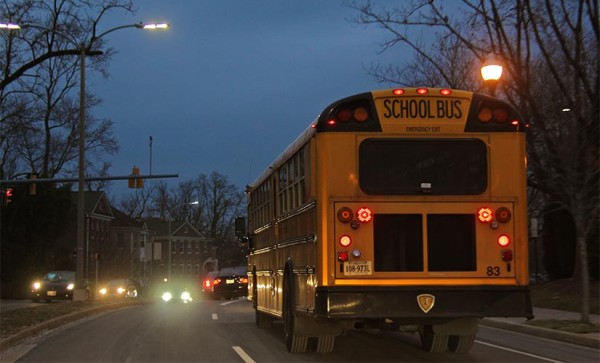In a recent study by the Arlington Partnership for Children, Youth and Families, only 24 percent of students said their parents were actively involved in helping them succeed in school.
With that in mind, APCYF has issued some advice for parents to help their kids “get off to a great start” as Arlington starts a new school year.
September is an exciting time for children, families and school staff. The Arlington Partnership for Children, Youth and Families (APCYF) wants to remind everyone that it’s a great time to think about what families can do to get off to a positive start and help make this a successful, asset-building school year for your children. Assets are simply the positive experiences, relationships and values that help young people make smart choices and grow up ready to be responsible, healthy, successful community members. Learn more at http://www.search-institute.
org .Mary Ann Moran, Assets Liaison and founding member of APCYF, advises parents and caregivers that a good start to the year begins at home with the basics. All children and teens need good rest and a healthy breakfast. “Although you can’t make kids eat or sleep, you can create an environment and set boundaries that encourage getting enough sleep and healthy eating,” said Moran.
- A healthy breakfast is vital. If you have a picky eater, get creative and offer choices. Any healthy food is good for breakfast – even pizza or PB&J.
- On average, elementary school children need 10-11 hours of sleep. Teens need 8-9 hours. Setting a regular bed time helps.
- No one can sleep with a cell phone under their pillow. Consider collecting all electronic devices at bedtime. Kids can retrieve them in the morning.
- Try to plan time to avoid “scrambling-to-get-ready” syndrome – it’s a bad way to start anyone’s day.
According to a survey of 1,651 students in Arlington, only 24% of 8th to 10th graders report having parents involved in school. Get involved with your child’s education now and stay involved all the way through 12th grade. One way to participate is to have real conversations about school. “Do you have homework?’’ is not a conversation starter. Instead, parents might say:
- Who did you eat lunch with?
- Why did you choose that particular book for your report?
- Tell me about your new teacher. (Instead of “Is your teacher nice?”)
- Tell me about the kids in your class.
- When I went into __ grade, I remember feeling _______.
If your child doesn’t want to talk when they get home from school or you first come home from work, try again later, said Moran.
Remind yourself that it’s your child who goes back to school, so their successes and their failures are their own. It’s hard, but let them learn from both. Children learn about being responsible and planning ahead by practice. At some point, they probably will forget their homework, let projects go to the last minute and leave books they need at school. But if they never experience consequences, there’s no motivation to learn to be responsible. Treat mistakes as learning opportunities to let children know you believe in them and their ability to deal with what happens, advised Moran.
Finally, let kids be kids. In our rush-around, stressed-out world, adults can help children have time to be silly, play and daydream, Moran said. It’s essential for them and it does wonders for us. For more information, visit http://
arlingtonpartnershipforyouth. .org/youthsurveyresults.htm
Flickr pool photo by Divaknevil


